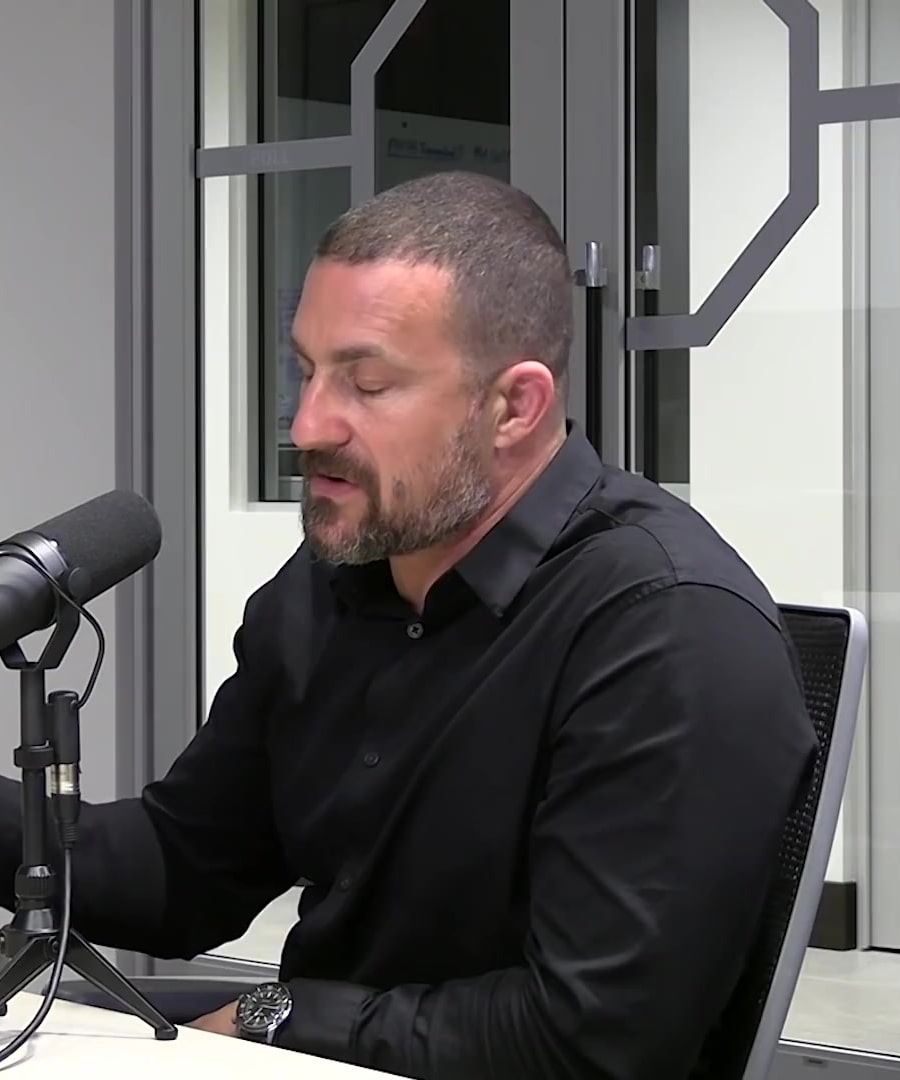how to increase testosterone
Sources:
To naturally increase testosterone levels, several methods can be considered based on insights from the :
-
Resistance Training: Engaging in regular resistance exercise can significantly impact testosterone levels. A specific protocol involving six sets of 10 repetitions with big compound movements like squats or deadlifts, with short rest periods, is shown to enhance testosterone levels. It's important that sessions are not too extended, as longer, high-intensity sessions might lead to a drop in testosterone and an increase in cortisol, which can be counterproductive 1.
-
Cold Exposure: There's anecdotal evidence suggesting that deliberate cold exposure, particularly to the groin area, could increase testosterone by enhancing blood flow and increasing dopamine levels, which can stimulate testosterone production through hormonal pathways. However, direct application to sensitive areas may not be necessary and could carry risks 2.
-
Diet and Supplements: Diet plays a crucial role; the Mediterranean diet is recommended for its positive effects on sexual health, which is often linked to testosterone levels. Supplements like boron and vitamin D can help optimize testosterone levels. Boron may help free up testosterone by lowering sex hormone binding globulin (SHBG) 3 4.
-
Lifestyle Factors: Maintaining a healthy body fat percentage, ensuring adequate sleep, and managing stress are essential. The interplay between testosterone and other hormones like estrogen is vital, so any hormonal adjustments should consider these interactions 5 6.
-
Avoiding Overtraining: Excessive training or insufficient recovery can detrimentally affect hormone levels. It's crucial to ensure balanced training with adequate recovery times to support hormone health 7.
These strategies emphasize a comprehensive approach that combines exercise, diet, lifestyle habits, and appropriate supplementation to naturally boost testosterone levels. Always consider consulting with a healthcare provider before making significant changes.
RELATED QUESTIONS-
What foods increase testosterone naturally?
Sources:
Foods high in healthy fats and certain nutrients can help naturally regulate testosterone levels. Here's what was discussed on the , specifically with on hormone optimization:
-
Healthy Fats: Consuming an adequate amount of fats, such as those found in grass-fed butter or ruminant meats (like beef and lamb), can be beneficial. These foods contain healthy trans fats and omega-3 and omega-6 fatty acids, crucial for maintaining a balanced ratio between testosterone and estrogen. Saturated fats may help with the synthesis of testosterone and estrogen, as they are derived from cholesterol molecules 1.
-
Omega-3 and Omega-6 Fatty Acids: These fatty acids are essential and can be ingested through the consumption of foods like fish, grass-fed meats, or supplements like algae for those following a plant-based diet. They support hormonal balance and overall health 1.
-
Ruminant Products: Foods like cheese, milk, and butter derived from ruminants are rich in healthy trans fats, important for hormone health and balance 1.
People following a vegan diet might need to supplement with algae or other plant-based sources to ensure they receive adequate fats for maintaining hormone balance 1. Always consult with a healthcare provider or a nutritionist to tailor these recommendations to your dietary needs.
RELATED QUESTIONS-
What do experts recommend for boosting testosterone?
Sources:
To boost testosterone naturally, several experts, including , suggest focusing on lifestyle habits and certain supplements:
-
Nutrition and Exercise: Prioritize a balanced diet and regular exercise. Both resistance and cardiovascular training are recommended to optimize testosterone levels. Additionally, ensure adequate sleep, as just 20 minutes more of rapid eye movement sleep can significantly boost testosterone 1.
-
Supplements:
- Tongkat Ali: Known to increase free testosterone by reducing sex hormone binding globulin. Recommended dosages range from 200 mg to 600 mg per day, depending on body size. It may take a few weeks to notice effects, which can include increased libido and energy 2.
- Fidojia: This supplement can help increase luteinizing hormone, which is upstream of testosterone production. It's particularly recommended for those with lower luteinizing hormone levels 3.
- Boron and Vitamin D: Boron can help reduce sex hormone binding globulin, thereby increasing free testosterone. Vitamin D, especially if deficient, can optimize testosterone levels 4.
-
Body Composition: If overweight, losing body fat should be a priority for maximizing testosterone and overall hormonal health. Conversely, lean individuals might consider increasing caloric intake to boost testosterone levels 5.
While supplements can be beneficial, they should be secondary to foundational lifestyle changes. It's crucial to consult with a healthcare provider to tailor strategies safely to individual needs and possibly include blood work to monitor progress.
RELATED QUESTIONS-
Who are other experts on testosterone?
Sources:
Here are some experts known for their insights on testosterone:
-
- A Harvard-trained, board-certified gynecologist known for her expertise in hormone health. She has authored several books on hormones and contributes to various podcasts on health and wellness.
-
- A urologist and professor at Stanford focusing on male sexual function and fertility. He is considered a top expert on male reproductive health.
-
- A urologist and pelvic surgeon specializing in pelvic medicine and sexual medicine. Dr. Malik also hosts a podcast where she discusses topics related to testosterone management.
-
- A physician and longevity expert, he integrates various aspects of health including testosterone optimization in his approach to longevity medicine.
-
- Known for her podcast "FoundMyFitness," she covers numerous health topics including those related to hormonal health and testosterone.
These experts provide valuable insights into testosterone through their research, clinical practice, and educational content.
RELATED QUESTIONS-
What exercises boost testosterone?
Sources:
To boost testosterone, specific exercises and training protocols are recommended:
-
Resistance Training: Engaging in resistance exercises, such as squats, deadlifts, and chin-ups, can significantly increase testosterone levels. A protocol involving six sets of 10 repetitions at about 80% of the one-rep max, with about two minutes of rest between sets, is found to be effective for stimulating testosterone production 1 2.
-
Heavy Weight Training: Performing strength training with heavy loads in the 1-8 rep range can boost testosterone by effectively recruiting high-threshold motor units. However, training to failure does not yield the same hormonal benefits, emphasizing the importance of load management and technique 3 4.
-
Endurance Timing: If endurance activities, like cardio, are performed before resistance training, they may lead to decreased testosterone during the workout. To optimize testosterone, it's beneficial to perform weight training first, followed by endurance exercises like cardio 5.
-
Intensity and Volume Balance: The intensity and volume of workouts play a crucial role in stimulating testosterone. Exercises should be intense enough to engage the muscle but balanced with adequate volume to support anabolic environments for muscle growth and overall strength 2.
These strategies are aimed at promoting optimal hormonal responses through neural engagement and careful management of training protocols.
RELATED QUESTIONS-
List 15 ways to increase testosterone
Sources:
Here are 15 ways to potentially increase testosterone levels based on discussions by from the :
-
Heavy Weight Training: Lifting weights, especially heavy loads in the 1-8 rep range, can significantly boost testosterone levels for up to 48 hours by recruiting high-threshold motor units 1.
-
Avoid Training to Failure: Workouts that engage muscles significantly without reaching muscle failure can help maintain high testosterone levels 1.
-
Prioritize Strength Before Endurance: Performing strength training before endurance exercises in the same session can help maintain higher testosterone levels during workouts 2.
RELATED QUESTIONS-
how to increase testosterone
- RELATED QUESTIONS
What foods increase testosterone naturally?
- RELATED QUESTIONS
What do experts recommend for boosting testosterone?
- RELATED QUESTIONS
Who are other experts on testosterone?
- RELATED QUESTIONS
What exercises boost testosterone?
- RELATED QUESTIONS
List 15 ways to increase testosterone
- RELATED QUESTIONS













